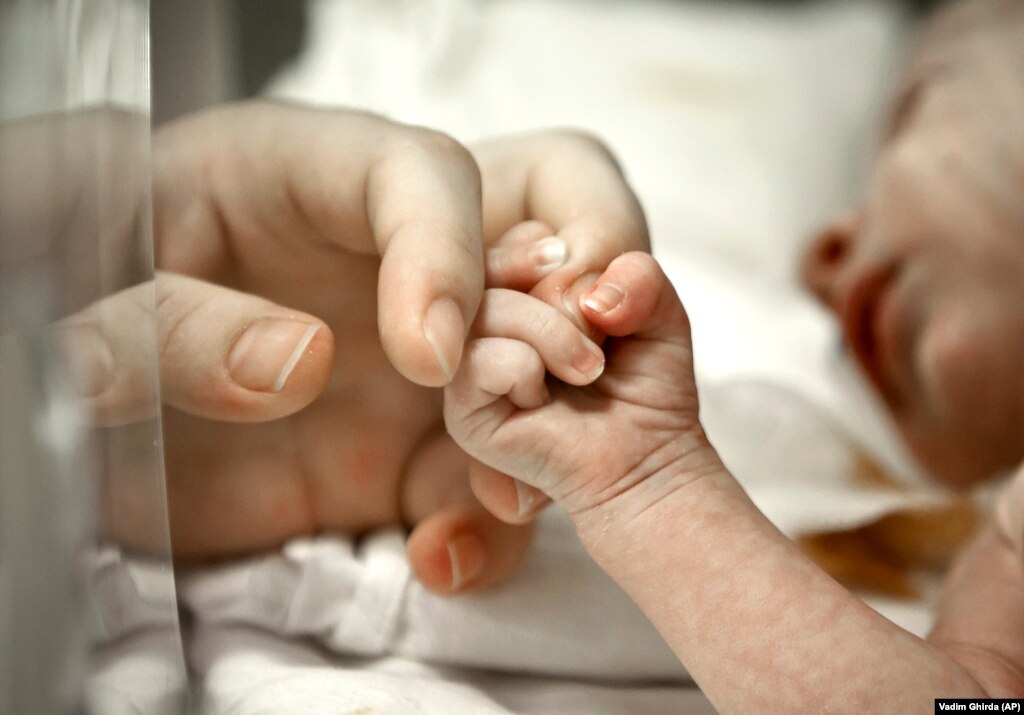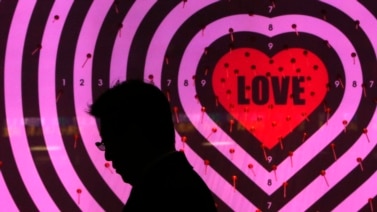
From VOA Learning English, this is the Health and Lifestyle report.
What is your first language? French? Chinese? Russian? Or English?
How about none of the above?
The first language of all humans is touch.
In the womb we begin touching our face in an effort to learn about ourselves. As infants we are calmed and soothed by our mother’s touch. Through all stages of our lives, we are comforted, we are helped, by touch. Students who receive a supportive touch participate more in class. Athletes have better games if they receive a high-five or a slap on the back from a teammate.
Clinical studies done over the years have found that a loving touch can lower our blood pressure, reduce anxiety and stress, and raise the levels of our good hormones.
Matt Hertenstein is an experimental psychologist at DePauw University in Indiana. He studies how touching can affect a person’s physical and emotional health. Hertenstein has written many articles on the power of touch. He writes in a 2010 report that if a child does not have enough loving touches early in life, the brain does not grow to normal size. Also, the connections between neurons do not develop properly.
In a recent interview with National Public Radio (NPR), Hertenstein said he found that loving touches can lower levels of cortisol – sometimes called the “stress hormone” -- and raise levels of oxytocin -- sometimes called the “cuddle” or “bonding hormone.”
Even simple hand-holding causes levels of the stress hormone cortisol to drop.
You don’t have to be a researcher to know this. In his song “Human Touch,” Bruce Springsteen sings about it.
I ain't lookin' for prayers or pity
I ain't comin' 'round searchin' for a crutch
I just want someone to talk to
And a little of that human touch
Just a little of that human touch
But besides studies and rock songs, I am sure we all have stories about how a loving, caring touch helped to make a bad situation better.
Here is my first-person story.
It is a winter day and I am walking home from work. It is cold and windy. I cross my arms against my body, trying to make myself warmer. My head points down against the wind. I curse myself for not wearing a warmer coat.
The pavement goes by quickly under my feet, as I think about my undone work waiting for me on my computer. I think about the mistakes I made and what I could’ve done better. I remind myself to pay the bills. I think about what I’m going to cook for dinner. Taking inventory in my mind, I worry. There are no fresh vegetables in my house. None. Not even a pea. I need to shop.
My mind is miles and miles away.
Then I notice her.
She is walking in front of me on the sidewalk. Well, she is not really walking, more like shuffling along in her house slippers. Her back is hunched over. She is not wearing a coat and her short, gray hair is messy.
As I pass her, she turns and smiles. Her smile lights up her face. I see that she is well into her 80s, maybe even early 90s. And she is holding some letters in her hands.
I walk on and arrive at the traffic light. Waiting there, I see the mailbox across the street. The light turns green for me to cross the street. But I pretend to check my phone and wait for her to catch up to me. In this neighborhood, even crossing with the green light is dangerous. Drivers often drive wildly through red lights and stop signs.
When she reaches me on the sidewalk, we wait, side-by-side, for the light to change. I want to speak to her, but I’m not sure. People are often untrusting of strangers in the city, and rightfully so.
But I turn to her and gently touch her on the arm.
“Excuse me ma’am. Can I help you?”
She smiles and answers in a language I do not understand. Is it Polish? Hungarian? It sounds Eastern European. But then she waves her hand as if to say, “We don’t need to talk, my dear.” She seems like the kind of woman who would call me “dear.”
She takes my hand in hers and holds it. Her small hand is soft and warm. So, now we’re waiting hand-in-hand for the light to change. What might have felt awkward, feels comfortable.
The light changes and we walk together slowly across the street. I drop the letters in the mailbox and take her back across the street.
When safely across, she says, “thank you” in beautifully accented English and waves good-bye.
As I walk home the rest of the way home I can still feel the warmth of her hand in my own. I touch my hand to my cheek. As a cold wind blows across my face, I look up to meet it. The night sky is beautiful and the air is crystal clear. A baby waves at me from inside a passing car. I watch a clumsy squirrel jump onto a tree branch and miss. I laugh and laugh.
Even as I write this, thinking of her, I can still feel her soft, warm hand in mine.
I’m Anna Matteo.
Words in This Story
shuffling – v. to bend your body forward and down so that your back is rounded to slide your feet along the ground or back and forth without lifting them completely
hunched – v. to bend your body forward and down so that your back is rounded
messy – adj. not clean or tidy; not neat
pretend – v. to make believe
pavement – n. the artificially covered surface of a public thoroughfare
inventory – n. a complete list of the things that are in a place
awkward – adj. causing embarrassment
comfortable – adj. allowing you to be relaxed : causing no worries, difficulty, or uncertainty
crystal clear – adj. perfectly clear : able to be seen through completely
clumsy – adj. moving or doing things in a very awkward way and tending to drop or break things


